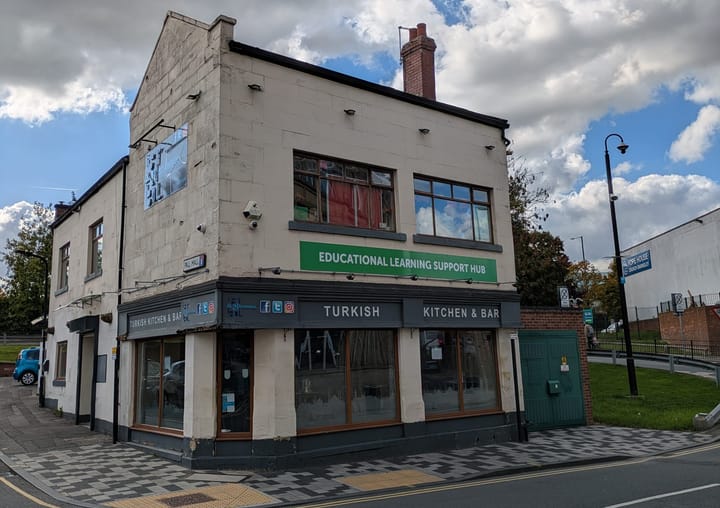The Precarious Migrant Worker: The Socialisation of Precarity is available today from Polity Press. In this blog piece for Polity, the author, Interregnum member Panos Theodoropoulos writes about the book's relevance in the current rapidly changing socioeconomic environment.
By Panos Theodoropoulos
From the ground up
A few days ago, I arrived at an undisclosed location in England to deliver a know-your-rights workshop as part of my activities with the Industrial Workers of the World (IWW). While labour infringements are constant features of precarious jobs, I was told that this migrant-dense location, with factories supplying meat products to some of the island’s largest supermarkets, was particularly Dickensian. The goal was therefore to equip precarious migrant workers in the town with the necessary knowledge to, at the very least, understand when their employers were taking undue liberties. A social centre was booked, translators were employed, a group of local organisers plastered the region in leaflets, and I prepared a shiny, new PowerPoint presentation to ensure I covered the legal basics as clearly as possible.
But the workshop never happened.
Initially, it appeared that nobody would turn up. We saw people walking past the social centre and looking in, but nobody entered. It took a whole hour before three middle-aged workers finally did. They were EU citizens but could not speak English, and it was clear that they had spent most of their migration staffing the factories of the region. They voiced no questions. Very soon, it dawned on me that my workshop was superfluous, that I had put the cart before the horse. For these people had much more immediate concerns than whether the law was being followed. Right now, they just wanted an opportunity to speak.
A recent retiree who was scraping by on £80 a week clutched a large binder in which he copiously kept decades’-worths of work documents: these were his receipts. Anxiously opening and closing it, he spoke of harassment, of regular threats, of non-payment of wages, of being fired, and of being forced to work 60- and 70-hour weeks, frequently without overtime. The accumulated stress of a lifetime of toil pierced through his voice and mannerisms. He was deeply angry, and he wanted to be heard. When I interjected to tell him that the union can help him reclaim stolen wages, he snapped at me – in these contexts, if a worker sticks their neck out, they are simply fired. In contrast to the big cities, where other work may be eventually found, being fired in smaller communities can utterly destroy one’s life: the workers all agreed that the agencies recruiting for the factories were in contact and maintained blacklists. My protests were futile: the threat of dismissal was so entrenched that it was perceived as insuperable.
In this light, the small numbers our workshop attracted began to make sense. The workers told us that our promotional leaflets had been seen by the community and had been intensely discussed. However, most people were scared that, if their employers found out that they had attended a union workshop, they would be immediately fired. Even attempting to know their rights was perceived as a serious risk. The collectivism of the employers was at full display: workers were literally trapped.
The employees, by contrast, did not benefit from a similar collectivism. Everyone agreed that a union would be advantageous, but they could not see a way to organise safely or to break through the defeatism of their colleagues. In conditions where the powerful are free to operate unchecked, the true nature of capitalism becomes transparent, and these workers told me of many brutal labour-related injuries without compensation. In one particularly disturbing case, one worker said that people in the factories sometimes faint due to the intense rhythms of the production line. He then laughed – a forecast for how absurd what he would go on to say was – and said that when workers fainted, they were picked up by a forklift truck and moved aside. When this happens, other workers are screamed at to continue working: the production line is vastly more important than caring for their colleagues. The laughter stayed with me: this laughter, simultaneously defiant in its criticism, yet impotent in its crushing inability to act upon it.
The law is a ray of light that cannot reach these depths. What was needed was a movement. Yet it was non-existent, and the fear generated by the labour regime seemed to ensure that it would remain so. In the absence of any organised resistance, the existing reality was naturalised and perceived as unalterable: a tired laugh was all one could muster, before redirecting their energies to their solitary struggle for survival.
The socialisation of precarity

This story resonates with most of the themes in The Precarious Migrant Worker: The Socialisation of Precarity. The production of the book – although I did not know it at the time – is rooted in the dozens of precarious jobs I had as a migrant worker in the UK, in Bradford and Glasgow. Although they were not as horrific as fainted workers being shovelled aside by forklifts, my jobs still shared the same general characteristics I learnt of at the workshop. Upon trying to organise alongside my fellow migrant colleagues, I repeatedly hit dead-ends, and most of the projects I was involved in seldom gained any traction.
This book is the result of my subsequent attempts to interpret these frustrated efforts. In doing so, I confronted a central concern of social movements since at least the Industrial Revolution: what is it that prevents the most exploited from organising? Answering this necessarily involved developing bridges between the realms of structure and subjectivity. However, a purely theoretical analysis would not suffice. Upon reading many texts exploring migration, precarity, neoliberalism, and resistance in the West, I was struck by the distance between them and the contexts they were examining. Many did not even foreground the voices of the workers whose conditions they were researching. Even worse, the vast majority lacked an analysis of the embodied aspects of work. I wanted to understand how the repetitive, boring, painful, daily grind of precarity impacts our conceptions of ourselves as workers, as humans, and as potential revolutionary subjects.
Drawing on my existing familiarity with precarious contexts in Glasgow, I covertly re-entered six workplaces to explore these questions. I also spoke to migrant workers to understand how they themselves perceive their precarity, their socioeconomic position, and collective resistance. In the book, you will read of La Dama, a restaurant whose kitchen staff celebrated their burns as rites of passage; of Amazon, where the cold rationality of the hand-held scanner dictated almost every movement; you will read of Nicole, who confidently proclaimed that she is not scared because she can switch jobs in the snap of a finger; of Suzan, whose shoulder was forever destroyed during her time as a hotel cleaner; and of Mateusz, who managed to successfully organise his workplace against all odds. What these stories share is contradiction: the experiences of migrant workers are incredibly complex and heterogenous. What they uniformly agree on is how deeply precarity penetrates almost every aspect of our being.
Throughout the book, I use the key term ‘socialisation of precarity’ to refer to the cumulative effects of labouring under precarious conditions. While my analysis is more nuanced than what I have the space to write here, I basically argue that beyond simply controlling workers’ behaviours during work, precarious labour regimes create a specific type of character structure, reaching deep into the recesses of subjectivity and cauterising the potential for the formation of bonds of solidarity. This is because, in attempting to survive the intense anxiety, alienation, and bodily decay that precarious, low-wage labour induces, workers are compelled to adopt identities that, ultimately, fortify their disempowerment. In the absence of trustworthy and inspiring social movements in their communities, they can only rely on themselves as individuals. As precarity is normalised into the workers’ sense of their everyday, their ability to labour becomes their sole source of security and strength. Precarity thus becomes not something to be overcome, but a fact of life that one must survive through – alone.
The anxiety and insecurity associated with precarious occupations induce workers to work faster, adopt ‘flexibility’ as a way of life, and continually overexert themselves in a quest to establish themselves as ‘good workers’. This quest is central, as it represents their only avenue towards a semblance of labour security. To this is added the transience associated with precarious occupations – not expecting to stay in a workplace for long, or expecting that their colleagues won’t, the worker is kept isolated. It is difficult to organise with people – particularly when the stakes are so high – without first trusting them. There is an interpersonal distance to be overcome first, and the difficulty of this is exacerbated by the knowledge that everyone is competing with everyone else for a limited number of jobs, while simultaneously being cognisant that their reputation as a ‘good worker’ is all they have. Rather than the understanding of being a ‘migrant’ or ‘worker’ leading to the development of strong collective identities, it thus more frequently leads to a further fortification of individualism, which may come to be perceived as an aspect of one’s autonomy. Precisely in attempting to wrest some degree of power out of acutely disempowering conditions, workers may turn what is demanded of them (flexibility, individualism, competition, overexertion, etc.) into proud aspects of their identity. They thereby sustain the structures that underpin their disempowerment.
This conclusion might seem ominous, as if indicating that there is no escape from the whirlpool of neoliberal individualism. The socialisation of precarity seems to allow little room for resistance. And yet, as the above story demonstrated, the combined effects of precarity are unable to dull workers’ fundamental, experiential awareness of class injustice, daily reinforced through their anxiety, injuries, burnout, and aching joints. Every worker I spoke to was more critical of capitalism than any mainstream trade union: in the words of Agnes, a Polish hospitality worker, ‘you can’t be friends with your boss’. Leila, a Spanish-Tunisian worker, added that ‘people aren’t stupid. They know exactly what’s going on.’ Such proclamations are crucial, because they express an understanding that capitalism relies on fear and systemic violence. It operates through the threat of hunger, and this threat, like the stench of death emanating from an island filled with Sirens, cannot be overlooked, no matter how seductive their song.
It is precisely from these visceral experiences of precarity, insecurity, and fatigue that strong, intersectional solidarities amongst precarious workers may be birthed. A key challenge of existing social movements thus concerns their capacity to direct their efforts towards establishing the institutions necessary to nurture this potential.
These issues are further explored in the book.
The next social struggles
I use the word ‘neoliberalism’ quite liberally throughout the text, and, until very recently, it seemed that it adequately defined our reality. However, particularly following Trump’s recent tariffs, the term has become the subject of intense scrutiny. Important scholars, such as Žižek and Hardt and Mezzadra, have been discussing the current developments as potentially representing the end of the ‘neoliberal’ world system. It does seem like the rising barriers to ‘free trade’, the triumphant resurgence of protectionism, and the weakening of US hegemony are elements that erode the foundations of what has come to be understood as ‘neoliberalism’. And yet, if neoliberalism is dead, it has left legacies that cannot be ignored by social movements on the ground.
When it comes to organising, these legacies mostly concern the continued disempowerment of organised labour, the continued isolation of workers, the continued assaults on their rights, and the continued retrenchment of empowering social narratives and identities from their communities. From my vantage point, it seems that current developments will lead to more insecurity for workers and an intensification of the border mechanisms that render migrants more exposed and more exploitable. Racism and xenophobia are on the rise; borders are hardened throughout the world; genocides are raging and are almost normalised; con artists are exploiting systemically-generated insecurities to dismantle any emancipatory gains of the previous decades, alongside convincing men to revert into crude caricatures of the patriarchal archetype; the cost of living is surging; social movements are progressively detached from social life; and a sterile, calculating, competitive individualism increasingly infects the most intimate crevices of our lives. To put it simply, the demons birthed by neoliberalism have not died alongside it. Rather, they have been fully unleashed.
I think that the book is particularly pertinent in this context, since it encourages us to look to the social base to understand, and resist, our current predicament. This social base is complex and encompasses multiple contradictory elements – for example, in a time that that neoliberalism may be decaying geopolitically, it remains still very much alive in the sphere of precarious labour. Similarly, the same worker may reproduce the socialisation of precarity, while also privately being intensely critical of capitalist labour relations. The book therefore urges us to be attentive to how our subjectivities – our senses of self – are a constant dialectic between our material realities and our capacities to imagine beyond them. It points to these material realities as still holding the power to be a foundation upon which to craft new identities of resistance and new cultures of mutual aid, departing from the universality of capitalism’s assault upon us. For this to succeed, it is imperative that social movements address their glaring absence from most of the communities that they claim to represent: it is only through engagement with the messy, uncomfortable, and often contradictory realities of precarious workplaces, workers, and communities that we can forge new emancipatory alliances and identities. As has been the case throughout history, these can only start from the ground up.
Get the book here!
Republished from Polity Books.
Panos Theodoropoulos is a sociologist and member of Interregnum. He is currently based in London and is organised with the Industrial Workers of the World.







Comments ()